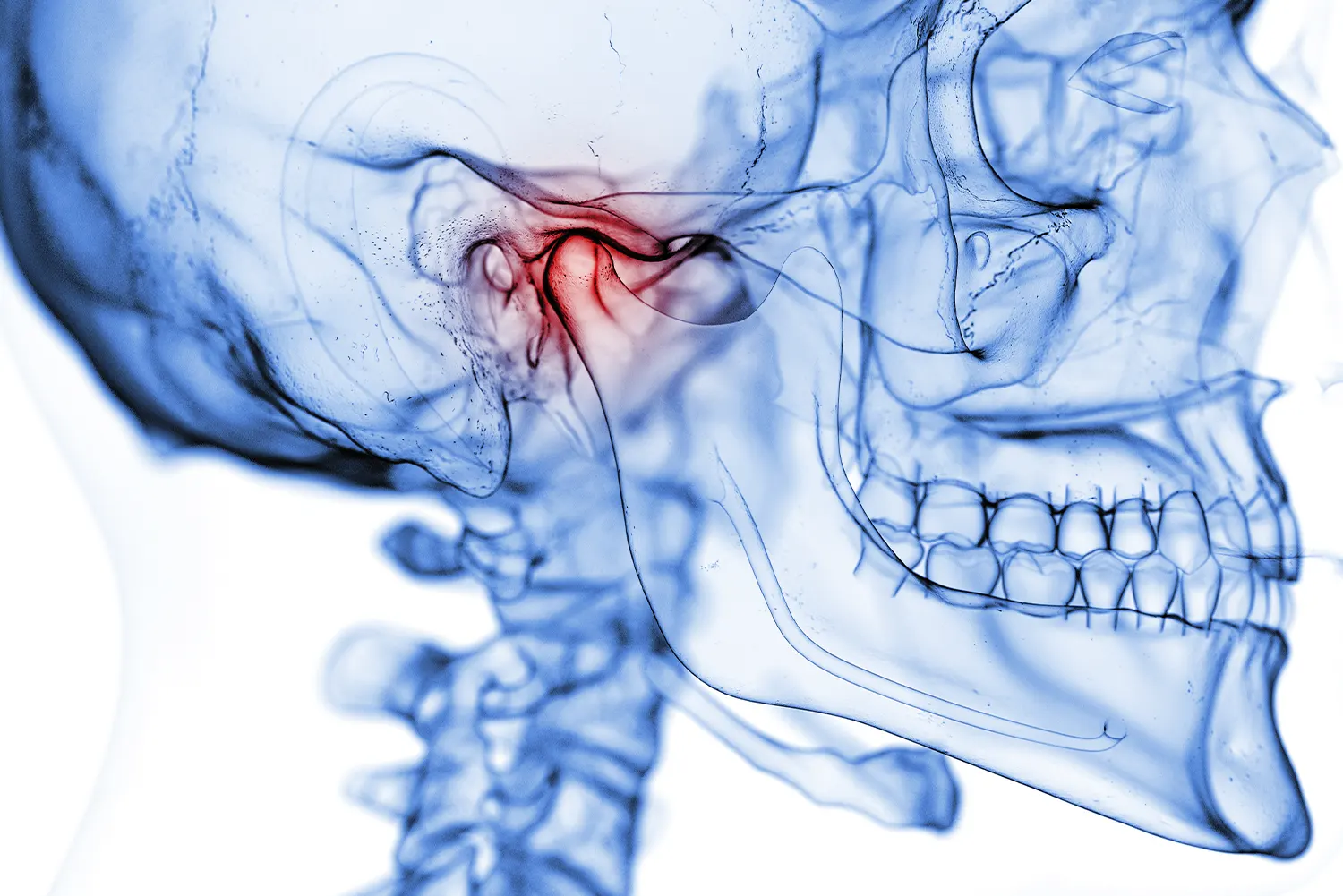Waking up with jaw pain, headaches, or even a chipped tooth is not a pleasant experience. These symptoms could be a sign of bruxism or temporomandibular joint disorder (TMJ). Both conditions can be managed effectively with the use of night guards or a TMJ splint. But did you know that not all night guards are created equal? In this blog, we will explore the differences between a TMJ splint vs night guard and help you understand which may be right for you.
What are Night Guards?
Night guards are dental appliances worn during sleep to protect the teeth and jaw from damage caused by grinding or clenching, known as teeth grinding. They create a barrier between your upper and lower teeth, reducing the impact of the grinding or clenching. Regular night guards are typically available over-the-counter and can be a one-size-fits-all or boil-and-bite design.
While regular night guards can provide some relief, they may not be the best solution for everyone. They are not customized to your mouth, which can lead to discomfort and ineffective treatment. Furthermore, they may not adequately address the underlying issues causing your symptoms, such as strain on your jaw joints or overactive jaw muscles.
What is a TMJ Night Guard?
A TMJ night guard, also known as a TMJ splint or bite splint, is a custom-made device designed specifically to treat TMJ disorders. It is made from durable materials and is molded to fit your teeth perfectly. This ensures maximum comfort and effectiveness.
TMJ splints work by repositioning the lower jaw to reduce the pressure on the temporomandibular joint. This helps to alleviate facial pain and discomfort, prevent further damage to the teeth and jaw, and promote better sleep. In some cases, a repositioning splint may be recommended to help align the bite more effectively.
Key Differences Between TMJ Night Guards and Regular Night Guards
While both types of night guards serve to protect your teeth and jaw, there are key differences that set them apart:
- Customization: TMJ splints are custom-made to fit your mouth, providing better comfort and effectiveness. Regular night guards are typically generic and may not fit as well.
- Purpose: Regular night guards are primarily designed to protect your teeth from teeth grinding or clenching. TMJ splints, on the other hand, are specifically designed to alleviate the symptoms of TMJ disorders by reducing strain on the jaw joints and jaw muscles.
- Cost: Due to the customization and specific treatment purpose, TMJ splints can be more expensive than regular night guards. However, the benefits they provide often justify the cost.
Choosing the Right Night Guard
Choosing the right dental appliance depends on your specific needs and circumstances. If you’re experiencing symptoms of bruxism or TMJ disorder, it’s important to consult with a dental professional. They can provide a proper diagnosis and recommend the most suitable treatment option for you—whether it’s a soft night guard, a hard night guard, or even a hybrid night guard.
Get Your Custom TMJ Night Guard in Jacksonville, FL
If you’re in Jacksonville, FL, and suspect you might need a TMJ splint, don’t hesitate to reach out to us at JAX Dental Studio. Dr. Charles Poblenz and our team of dental professionals are here to help. We will work with you to determine the best treatment plan for your needs. Say goodbye to morning headaches and jaw pain and hello to a better night’s sleep. Call us today at (904) 396-4091 or request an appointment online.
Frequently Asked Questions
How much does a custom TMJ night guard cost compared to a regular night guard?
TMJ splints are typically more expensive than regular night guards due to their customization and specialized treatment purpose. A regular over-the-counter night guard costs $20-$50, while a custom TMJ splint from a dentist ranges from $300-$800. However, the investment often justifies itself through better comfort, proper jaw alignment, and effective symptom relief. TMJ splints are custom-made to fit your specific bite and address jaw positioning issues, not just protect teeth from grinding. Many dental insurance plans provide coverage for TMJ splints when medically necessary. Contact JAX Dental Studio to discuss your specific needs and explore payment options for a custom TMJ solution.
Can a regular night guard make TMJ symptoms worse?
Yes, using a generic or over-the-counter night guard can actually worsen TMJ symptoms in some cases. Regular night guards, especially soft boil-and-bite versions from drugstores, may not properly support jaw alignment and can encourage more clenching. If your lower jaw isn’t aligned correctly, a standard night guard won’t address the root cause of TMJ disorder. You may continue experiencing jaw pain, clicking sounds, headaches, and muscle tension even while wearing protection. A TMJ splint is specifically designed by Dr. Poblenz to stabilize and reposition your jaw, reducing strain on the jaw joints and muscles. If you’re experiencing jaw pain, clicking, or difficulty moving your lower jaw, schedule an evaluation to determine whether you need a specialized TMJ splint rather than a basic night guard.
What symptoms indicate I need a TMJ night guard instead of a regular one?
You likely need a TMJ splint rather than a regular night guard if you experience jaw joint pain, clicking or popping sounds when opening your mouth, difficulty chewing or speaking, frequent headaches or earaches, or jaw locking. While regular night guards primarily prevent tooth damage from grinding, TMJ splints address the underlying joint dysfunction by promoting proper jaw alignment and muscle relaxation. Other signs include pain that radiates to your neck or shoulders, uneven jaw movement, or waking with facial muscle soreness. Dr. Poblenz can evaluate your bite and jaw function through a comprehensive examination to determine the best treatment. A proper diagnosis is essential since TMJ disorders require specialized treatment beyond simple tooth protection.


